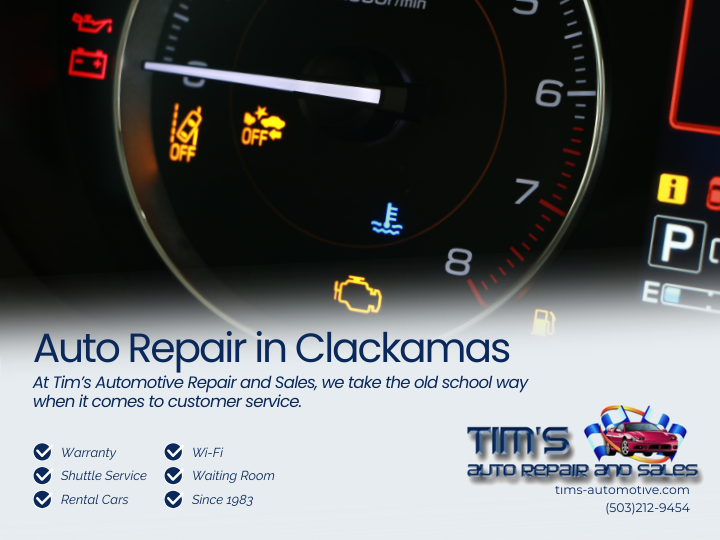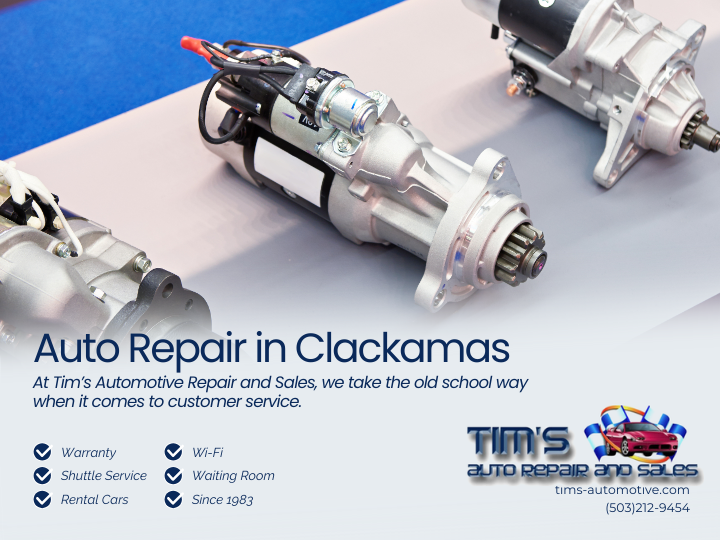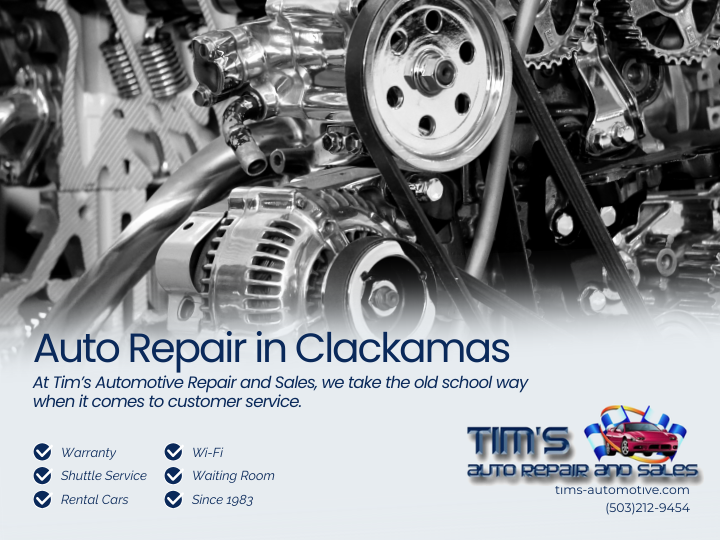Posted on 2/3/2025

Why Does My Check Engine Light Come On? The check engine light is one of the most misunderstood warning indicators in a vehicle. It can illuminate for countless reasons, some minor and others severe. If you've ever found yourself wondering, "Why is my check engine light on?" you're not alone. Let’s break down the possible causes, symptoms, and the best course of action when this light appears on your dashboard. Common Reasons Your Check Engine Light Is On Your vehicle is an intricate machine with numerous components working together to ensure smooth operation. When one of these components fails or operates outside normal parameters, the onboard computer (ECU) detects the issue and triggers the check engine light. Below are some of the most common reasons for a check engine light: 1. Faulty Oxygen Sensor The oxygen sensor (O2 sensor) monitors the amount of unburned oxygen in the exhaust. A failing O2 sensor can cause your car to burn more fuel than necessary ... read more
Posted on 1/27/2025

Why Does My Car Ride Feel So Bumpy? Introduction I recently took a ride in my car, and it felt so bumpy. It’s amazing how much technology has evolved over the years, smoothing out our rides like never before. Back in the day, cars were significantly rougher, and drivers simply accepted it as the norm. Today, we’ve come to expect a smooth ride, and when it suddenly turns bumpy, it’s hard to ignore. Technology has indeed come a long way, and a smooth ride is something many of us take for granted until something goes wrong. This blog will explore the various causes behind a bumpy ride, why it’s important to address them, and how you can ensure your car stays in top shape for a comfortable journey. If you’re in the Clackamas, OR area, Tim’s Automotive Repair and Sales is here to help! 1. Understanding the Road Factor Not all roads are created equal. Sometimes, the bumpiness isn’t your car’s fault—it’s the road ... read more
Posted on 1/20/2025

Why Is My Car Making a Clicking Noise When I Try to Start It? If you’ve ever put your key in the ignition, turned it, and been greeted by a rapid “click, click, click” instead of your engine roaring to life, you know how frustrating this can be. A clicking noise when trying to start your car typically indicates a problem with your vehicle’s starting or electrical system. Let’s dive into the common causes of this issue, the steps you can take to address it, and how Tim’s Automotive Repair and Sales in Clackamas, OR can help you resolve the problem quickly and efficiently. Common Causes of a Clicking Noise When Starting Your Car 1. Weak or Failing Battery The number one cause of a clicking noise is a weak or failing battery. While a completely dead battery often results in no noise at all, a weak battery can engage the starter motor without having enough power to crank the engine, leading to the clicking sound. Possible Symptoms ... read more
Posted on 1/12/2025

Why Does My Car Shake at Idle? | Tim’s Automotive Repair and Sales Is your car shaking when it’s idling? At Tim’s Automotive Repair and Sales, located at 15688 SE 135th Ave, Clackamas, OR 97015, we understand how frustrating and concerning this issue can be. Your car should run smoothly, and excessive vibrations at idle often indicate an underlying problem that needs attention. With decades of experience in automotive repair, our team is here to help you identify the cause and get your vehicle back to optimal performance. Common Causes of Car Shaking at Idle When your car shakes at idle, it’s often a sign that something isn’t functioning as it should. Here are the most common culprits: 1. Engine Misfires A misfiring engine can cause your car to shake. This happens when one or more of the cylinders fail to ignite properly. The reasons for misfires can include: Worn Spark Plugs: If your ... read more
Posted on 1/6/2025

Why Does My Car Heater Have a Bad Smell? A properly functioning car heater is essential for comfort during colder months. However, when your car heater starts emitting unpleasant odors, it can make your drives uncomfortable and signal deeper mechanical issues. Let’s explore the common causes of a smelly car heater and why Tim’s Automotive Repair and Sales, located at 15688 SE 135th Ave, Clackamas, OR, is your trusted destination for reliable auto repair. Common Causes of a Bad Smell from Your Car Heater 1. Mold and Mildew in the HVAC System Mold and mildew buildup is a leading cause of musty odors coming from your car heater. Moisture trapped in the evaporator core creates the perfect environment for bacteria and mold to thrive. Signs: Musty or damp smell when the heater is turned on. Odor diminishes slightly after running the system for a while. Why It Happens: The evaporator core retains moisture, fostering the growth of mold and bacteria. These odor ... read more